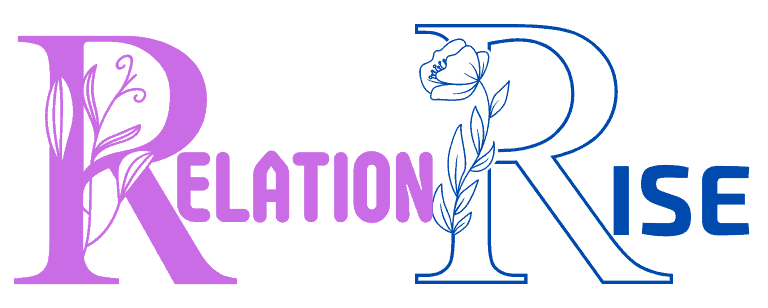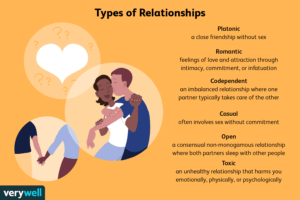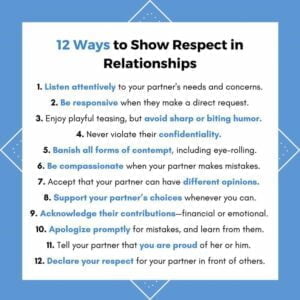What Does Standing Your Ground in a Relationship Mean
Standing your ground in a relationship means asserting your beliefs, boundaries, and needs in a respectful manner. It involves maintaining your individual identity while also working towards mutual understanding and compromise with your partner.
In a healthy relationship, standing your ground fosters communication, respect, and trust between partners. When you stand your ground, you prioritize open and honest communication over avoiding conflict. It means expressing your thoughts and feelings, setting and respecting personal boundaries, and advocating for your needs while also considering your partner’s perspective.
Ultimately, standing your ground in a relationship involves asserting yourself while working towards a harmonious and fulfilling partnership.
Importance Of Asserting Personal Boundaries
Establishing Emotional Autonomy
Establishing emotional autonomy is crucial in standing your ground in a relationship. It involves recognizing and honoring your own feelings, thoughts, and needs, independent of your partner. By setting boundaries that protect your emotions and well-being, you foster a sense of independence and self-reliance within the relationship.
Nurturing Self-respect And Confidence
Nurturing self-respect and confidence lays the foundation for a healthy relationship. When you assert your personal boundaries, you demonstrate self-respect and cultivate confidence in your own worth. This, in turn, fosters mutual respect within the relationship, creating a balanced dynamic based on equality and understanding.
Effectively Communicating Your Needs
In a relationship, standing your ground means effectively communicating your needs to your partner. Open and honest dialogue and practicing active listening are essential for fostering understanding and mutual respect. When each partner feels heard and validated, it can strengthen the foundation of the relationship, leading to greater harmony and satisfaction.
Open And Honest Dialogue
Open and honest dialogue involves creating an environment where both partners feel comfortable expressing their thoughts, feelings, and concerns. This type of communication promotes transparency and trust, allowing for the resolution of conflicts and the reinforcement of emotional connections. By being straightforward and sincere in your discussions, you establish a space where both individuals can freely voice their perspectives.
Practicing Active Listening
Practicing active listening is a pivotal component of effectively communicating needs in a relationship. It entails giving your full attention to your partner, acknowledging their emotions, and responding in a supportive and empathetic manner. This approach fosters understanding and empathy, creating an atmosphere where each partner feels valued and validated. Through active listening, couples can develop a deeper understanding of each other’s desires and concerns, resulting in a more harmonious and fulfilling partnership.
Handling Conflict Constructively
In a relationship, disagreements and conflicts are inevitable, but it’s how you handle these challenges that determines the strength and longevity of the relationship. Standing your ground in a relationship means effectively addressing conflicts in a constructive manner, maintaining mutual respect, and finding resolutions that benefit both partners.
Resolving Differences Amicably
When conflicts arise, it’s crucial to approach them with a mindset focused on finding a resolution rather than engaging in a win-lose scenario. Open communication, active listening, and empathy play pivotal roles in resolving differences amicably. Cultivating effective communication allows partners to express their concerns, emotions, and perspectives, leading to a deeper understanding of each other’s point of view.
Seeking Compromises While Upholding Values
During conflict resolution, it’s essential to seek compromises that align with both partners’ core values. Identifying common ground and finding solutions that honor individual values can lead to mutual satisfaction and strengthen the relationship. While compromising, it’s crucial to ensure that neither partner feels their values or beliefs are compromised, fostering a sense of mutual respect and understanding.
Respecting Individual Autonomy
Respecting individual autonomy in a relationship is essential for creating a healthy and fulfilling partnership. It involves acknowledging and honoring each person’s independence, identity, and decision-making abilities. When individuals feel respected and supported in their autonomy, it fosters a sense of empowerment and trust within the relationship.
Encouraging Personal Growth And Development
Encouraging personal growth and development is a fundamental aspect of respecting individual autonomy. It involves recognizing and nurturing each person’s unique goals, aspirations, and personal interests. By promoting an environment that supports individual growth, both partners can thrive as individuals within the relationship. It’s essential to celebrate each other’s accomplishments and provide encouragement and support as each person pursues their own path to personal fulfillment.
Embracing Differences And Individuality
Embracing differences and individuality is another key component of respecting individual autonomy in a relationship. It involves appreciating and valuing each person’s distinct personality, beliefs, and perspectives. Embracing differences encourages open-mindedness and creates a space for healthy communication and understanding. When partners are able to authentically express themselves without judgment, it strengthens the foundation of the relationship and fosters a sense of acceptance and inclusivity.
Reevaluating The Relationship Dynamics
Recognizing Unhealthy Power Imbalances
In any relationship, it’s essential to be cognizant of power dynamics. Recognizing unhealthy imbalances of power is crucial for maintaining a healthy and harmonious connection with your partner. Whether it’s related to decision-making, financial control, or emotional domination, acknowledging and addressing these imbalances is the first step toward leveling the playing field and nurturing a more equitable partnership.
Striving For Mutual Respect And Understanding
Striving for mutual respect and understanding is fundamental in any relationship. It involves open communication, active listening, and a willingness to empathize with your partner’s perspective. By fostering an environment of mutual respect, both parties can feel valued and validated, leading to a deeper and more meaningful connection.
Frequently Asked Questions For What Does Standing Your Ground In A Relationship Mean
What Does It Mean To Stand Your Ground In A Relationship?
Standing your ground in a relationship means asserting your needs and boundaries respectfully.
How Can I Assert Myself While Standing My Ground In A Relationship?
Assert yourself by communicating openly, setting boundaries, and being true to your values.
Is Standing Your Ground In A Relationship The Same As Being Stubborn?
No, standing your ground is about healthy assertiveness, not stubbornness. It’s about mutual respect.
Can Standing Your Ground In A Relationship Improve Communication?
Yes, standing your ground can lead to clearer communication and a better understanding between partners.
What Are The Benefits Of Standing Your Ground In A Relationship?
Standing your ground can lead to increased mutual respect, healthier boundaries, and more authentic connections.
Conclusion
In the end, standing your ground in a relationship means valuing your needs and boundaries. It’s about maintaining self-respect and fostering mutual respect. By communicating openly and honestly, you can strengthen your connection with your partner. Remember, compromise is healthy, but never compromise your values or well-being.
This approach fosters a healthy, balanced relationship.





